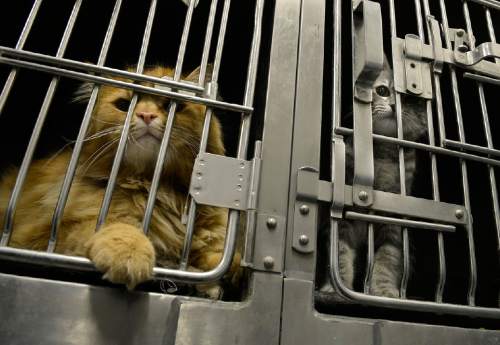This is an archived article that was published on sltrib.com in 2016, and information in the article may be outdated. It is provided only for personal research purposes and may not be reprinted.
A legislator says it's time to outlaw "gas chambers" used for euthanasia at some animal shelters.
Rep. Johnny Anderson, R-Taylorsville, introduced HB187 to allow using only lethal injection to kill shelter animals.
"I'm an animal lover," Anderson said. "As I was approached about this and started looking into it, I discovered we don't really need those gas chambers in shelters anymore" — and found that most cities no longer use them.
Seven shelters in Utah still do, he said, including in West Valley City, South Jordan and three in Utah County.
Anderson said the chambers that use carbon monoxide or carbon dioxide, often from the exhaust of an engine, amount to "a scary situation for the animals."
He said lethal injection costs no more than operating gas chambers, and it is quicker and more humane.
"It's better to put them down quickly, and they're not scared to death for a half hour in a dark chamber," Anderson said.
"It might be a little tougher on some employees to be there when the animal is put down," he said. Still, "I think in the long run this is the right thing to do."
South Jordan city spokeswoman Tina Brown said while her city's gas chamber is used primarily for "non-domesticted" animals, such as wild racoons, that could pose a threat to workers.
Also, she said some pet owners who request euthanasia for sick animals by that method are allowed to select it.
Brown said South Jordan has taken no position on the bill, but is actively involved in negotiations about it.
Anderson said he has talked to some agencies that still use gas chambers, and said they often are concerned about costs.
"Their No. 1 cost issue is that they haven't fully depreciated the cost of the investment they have made. I understand that concern," Anderson said, adding he is working with them to seek possible compromise.
For example, his bill as introduced calls for cities to disassemble their chambers, and fiscal analysts say that could cost a total of up to $175,000 combined for the cities involved. But Anderson said his bill may change to allow chambers to remain in place but not be used.



